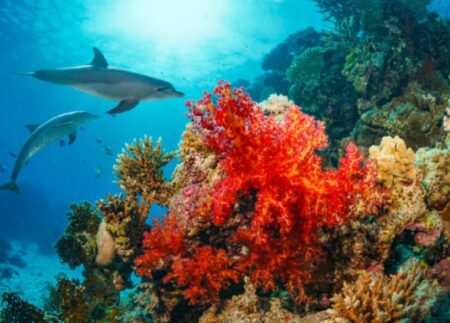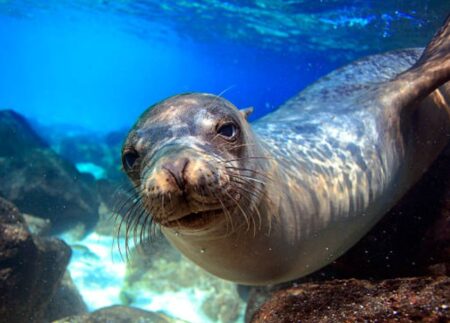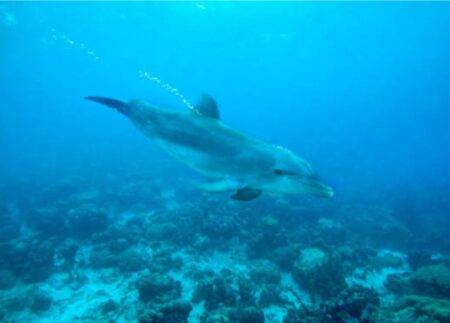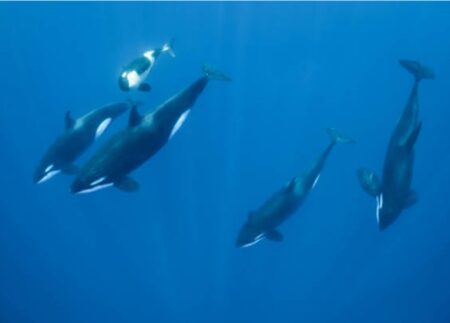Sound plays an important role in the lives of marine life. All marine mammal and many fish and invertebrate species emit sound, and sound production has been associated with a variety of behaviours including those related to mating, rearing of young, social interaction, group cohesion, and feeding. Underwater noise, whether of natural or anthropogenic origin, may interfere with the abilities of marine life to receive and process relevant sounds and could potentially impact individual fitness. Thus, noise generating activities, including those related to oil and gas exploration and production, military operations, and transportation, require careful consideration with respect to their possible auditory effects.
Of all the ways in which noise can affect the lives of marine life, auditory masking is perhaps the most pervasive. Masking occurs when yythe ability to detect a sound of interest is degraded by the presence of another sound (the masker). Quantitatively, masking refers to the amount in decibels by which an auditory detection threshold is raised in the presence of a masker. While masking is a common, if not universal, feature of natural communication systems, predicting masking is difficult given the complexity of factors that must be accounted for.
Our research has been broken down into four parts which can be viewed below:



